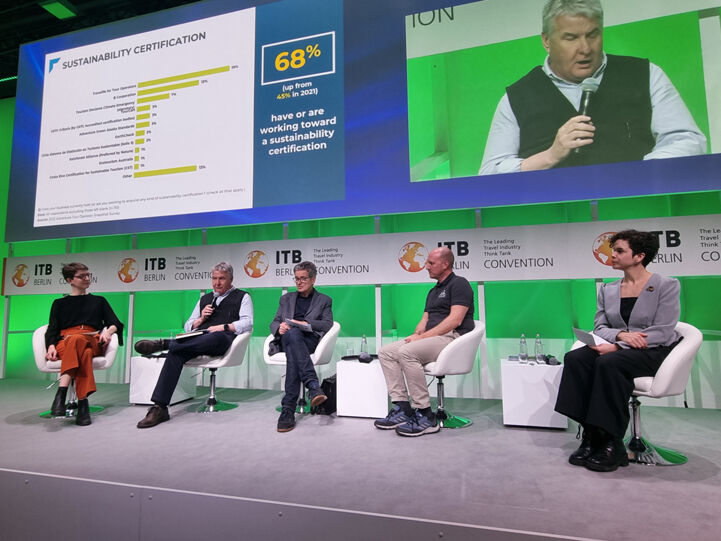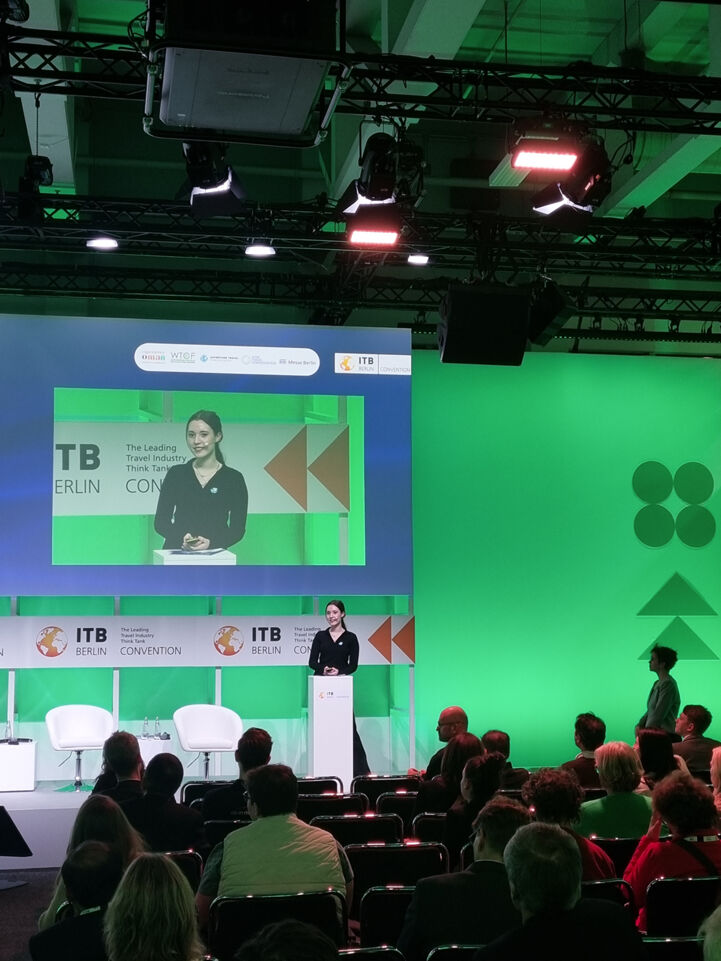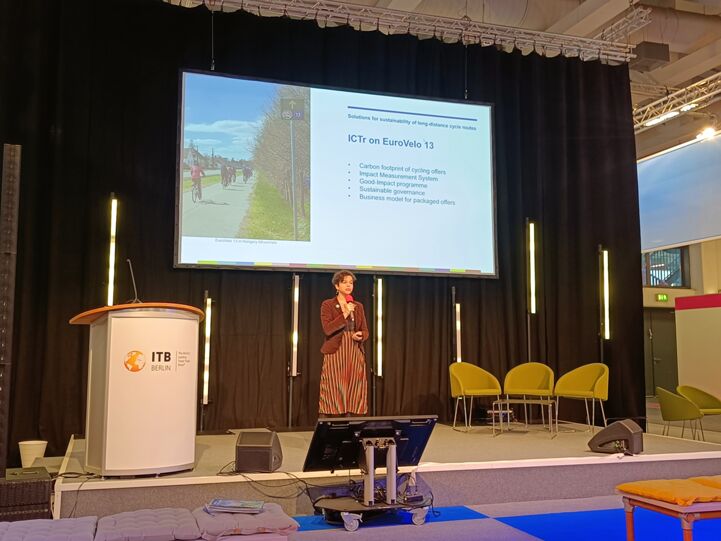EuroVelo: highlighting cycling tourism at ITB Berlin 2024
The EuroVelo Management Team was present at ITB Berlin 2024, organising and coordinating a session about cycling tourism on the Green Stage and speaking at another cycling-tourism-focused session.
On Wednesday 6 March, the ECF-led session ‘Boosting the growth of cycling tourism with data, quality and digital tools’ gathered on the same stage many key actors in the cycling tourism sector. The session started with a round table about the latest trends and data, with Russell Walters, Destination Development & Regional Director, North America at Adventure Travel Trade Association (ATTA), Heiko Riekenberg, Director of CycleSummit & CEO of Bikemap, Christian Tänzler, Federal Board Member of ADFC and Agathe Daudibon, EuroVelo Manager, moderated by Jessica Casagrande, EuroVelo, Communications and Projects Coordinator.
During the round table, Christian Tänzler presented the latest data from the ADFC Bicycle Travel Analysis. Heiko Riekenberg, Russell Walters and Agathe Daudibon then introduced their work and the survey for cycling tour operators, launched last month with a partnership between the three organisations. The results of this survey will be included in the EuroVelo Data Hub.

The round table continued with a discussion on the need for more and better data to map and quantify cycling tourism and its impact in Europe, and on the most promising trends in cycling tourism – stressing the diversification of user types in cycling tourism, with gravel cycling for example, or beginners starting cycling touring for the first time.

.
The fast-paced session concluded with pitches about digital tools for businesses and destinations to attract cycle tourists. This section saw organisations and companies get on stage and present their own solutions to improve the cycling tourism offer: Jessica Casagrande introduced the EuroVelo website, Iris Wermescher presented Komoot’s digital ecosystem and business solutions focusing on Outdoor activities, Bertrand Charlet discussed the MHIKES digital roadmaps used by tour operators for their clients and Hartmut Wimmer, CEO of Outdooractive, closed with the company’s focus on apps to navigate local hiking and cycling routes.
On Thursday 7 March, Agathe Daudibon was featured in the programme of the Lighthouse Stage, to present solutions for the sustainability of long-distance cycle routes, with EuroVelo 10 – Baltic Sea Cycle Route and EuroVelo 13 – Iron Curtain Trail as case studies. In the framework of the Interreg co-funded projects Baltic Biking UPGRADE and ICTr, initiatives to strengthen the environmental sustainability and business models of these routes are developed, backed up with improved governance. Both projects supported EuroVelo’s participation at ITB Berlin, together with the EuroVelo 15 and EuroVelo 19 Partnerships.

The large attendance at the cycling tourism session on the Green Stage and the many cycling tourism products highlighted by several exhibiting destinations, as well as positive feedbacks on EuroVelo when networking with tourism operators, partners or destinations, show the attractiveness of cycling tourism, especially as it is a respectful and more sustainable way to travel. However, in the broader context of ITB Berlin (nearly 100,000 attendees, more than 5,500 exhibitors from 170 countries), cycling is still a niche, especially if compared to the weight of other types of tourism and modes of transport. It seems that cycling tourism’s huge potential to address the urge for a sustainable transition of the tourism industry is not yet fully exploited.
EuroVelo proved to attract good attention and key partners in cycling tourism, in global events such as ITB, and hopes to continue to be a center of gravity for the sector. For three days of targeted networking and cycling tourism-themed in-depth discussions, the place to be is the EuroVelo & Cycling Tourism Conference 2024, taking place in Viborg, Denmark, from 23 to 25 September. The Call for abstracts on the theme ‘Legacy and Localhood’ is open until 2 April, 23:59 CEST, and registrations are open via the Conference website.